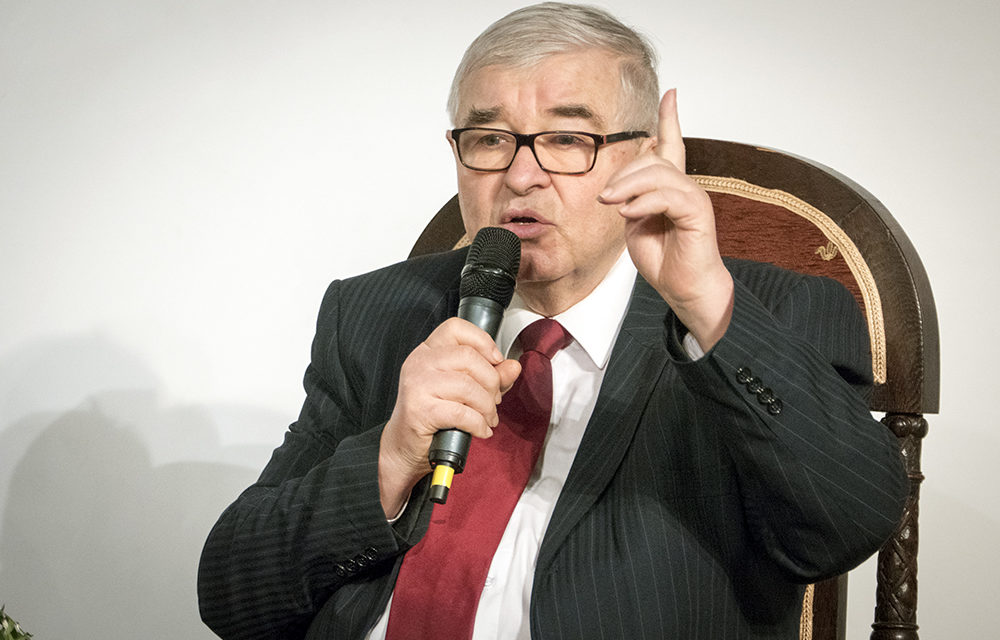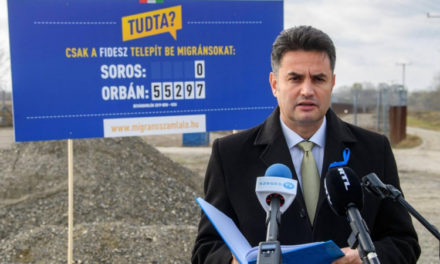We often hear the term proxy war in connection with the Russian-Ukrainian war, but not everyone knows what it means in a given situation. Economist Imre Boros explained this issue from a financial and economic perspective at the Civil Academy held in Dombóvár.
– First, let's look at the fact that proxy is not such a popular term in Hungary. A proxy is usually a document when I entrust someone with something to act on my behalf, on my behalf. Lawyers used to appear by proxy at the company court and at the company's general meetings if the owner does not want to go.
A proxy in the case of war means that someone fights on someone else's behalf for the principal's interests. Well, this is typically the situation in Ukraine. Because what's the point? Redistribution of control over the world's major resources.
What are these main resources?
– Energy carriers first, food second. The Russians abound in these. At that time, in the bright Soviet Union, under Brezhnev, the Soviet Union bought 40-45 million tons of grain per year in order to have enough food for the citizens. Today they bring about that much to the market. That's a difference of ninety million tons. To give you an idea of how large a quantity it is, Hungary's production of bread grain and feed grain is at best 5.5 million tons. What we eat as bread is maybe 2-2.5 or even less.
In the case of energy carriers, there are two major players in the oil market, Saudi Arabia and Russia. Together, the two dominate the market. Regarding gas, we know that Russian gas supplied Europe.
This relationship is now being liquidated, which is an excellent deal, but not for us. So, in effect, the time has come to redistribute these resources.
In the management of the energy market, the prices were always dictated by the large western stock exchange base companies. For example, how much Brent should cost. Therefore, the price of oil has nothing to do with the extraction costs, it is set arbitrarily and according to current business interests. The same is true for grain prices.
Now, if someone has these resources and has a say in the development of the market, which trader would like it if another one appeared in the market where he is the sole ruler? The first thing you need to do is figure out how to get him out of there.
"How to do this?" By teasing someone! Ukraine has been vacillating for a long time whether to approach the West or the East. One government was inclined to this, the other to that, but they always pointed out that they are inextricably linked to the Russian economy by a thousand threads.
And then came the events on Majdan Square, which were called a revolution. That changed everything.
- But what was that "revolution" like? The wife of one of my dear friends worked at the OTP branch office in Kiev. Here in Pest, the news was that a great revolution was taking place in Ukraine. I called on the phone, asked what was happening there, were they safe? He says: why shouldn't we be? I told you what the news was. To this he replied: I did not hear anything. He was in Kiev! So it was a strange revolution that was limited to Maidan Square.
That the "revolution" did it, that is, it was artificially induced, is no secret. Deputy Foreign Minister Viktória Nuland, who is still in office today - and of Russian origin, by the way - said in a wiretapped telephone conversation that "we have already spent five billion dollars on this project". To turn Ukraine around. This has happened, the "proxy" situation has already developed.
So there is nothing to be surprised that this war was started and it is worth it for them to continue even to the last Ukrainian.
The text was created based on the conversation given at the Civil Academy.
Author and photos: civilek.info












